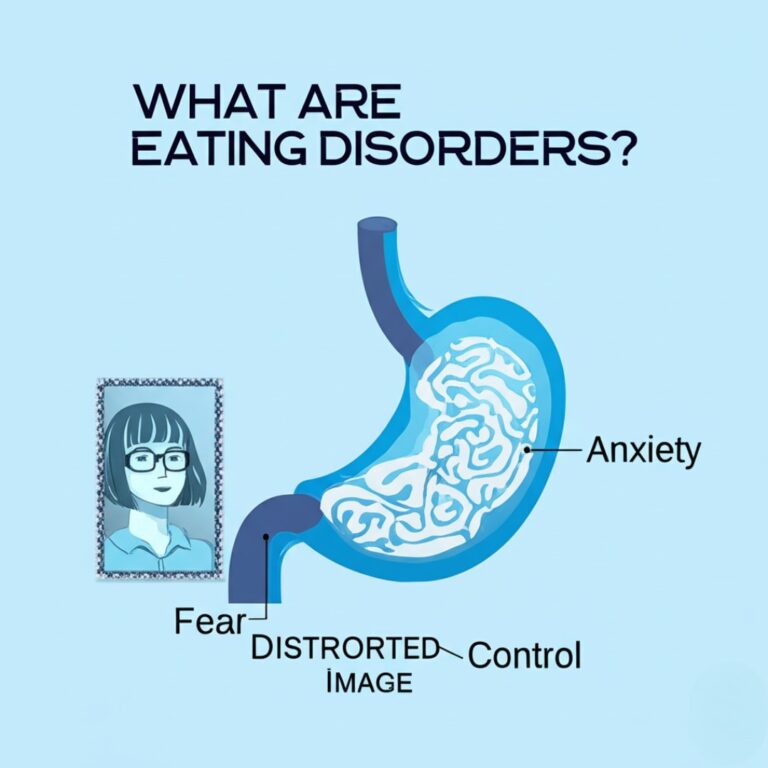The 21st century, being an era of fast living, has ushered in an age when mental health disorders have become common and affect almost every single aspect of life. Most times, it is either you or a loved one that is the victim of anxiety or depression or sometimes even more severe problems requiring mental health facilities for their treatment and rehabilitative needs. Choosing a mental hospital for mental wellness is crucial to the recovery of the affected and the overall well-being of a person. This article notes the different types of mental health treatment facilities and their benefits, as well as how to select the most pertinent one that targets your specific needs.
What Are Mental Health Facilities?
They are specialized institutions that offer care, therapy, and wellness for people diagnosed with mental conditions. Mental health facilities have a variety of types ranging from outpatient clinics to residential treatment facilities, including those that take care of patients with different psychiatric ailments.
Types of Mental Health Facilities \Finding Mental Health Help
- Inpatient Psychiatric Hospitals
- 24/7 intensive care is carried out for severe mental illnesses.
- They get therapy, supervision, and crisis counseling.
- The best-fit candidates are those going through severe and acute experiences or are liable to suicide.
- Outpatient Mental Health Clinics
- Therapy, counseling and medication management would be offered without hospitalization.
- The user will normally find it suitable for getting mental health support, used appropriately by ordinary individuals in their daily life.
- Residential Treatment Centers
- Offer long-term care in a regulated environment.
- We are a wonderful choice for persons who are recovering from substance abuse and chronic mental illnesses, providing them with the stability and support they need to reach and maintain sobriety.
- Partial Hospitalization Programs (PHPs)
- A kind of thing between inpatient and outpatient services
- Each day, patients will have a day program and will go back home at night.
- Crisis Stabilization Units
- It is one of the best options to aid someone struggling with emotional distress.
- created for the sole purpose of stabilizing patients before they are returned to long term care.
- Community Mental Health Centers
- Provide budgeted mental health services to the public.
- The focus is on psycho-therapy, rehab, and crisis intervention.
- Therapeutic Boarding Schools and Youth Programs
- The treatment and education suffers for these children-who began to show multiple behaviors-children who seek to regain their wellness, self-assurance, happiness, and social reintegration, while improving parental attachment or fostering responsibility.
- Focus more on long-term adaptation and personal growth.
- Rehabilitation Centers for Mental Health and Substance Abuse
- Help create programs for offering specialized services to individuals battling with addiction as well as co-occurring disorders.
- Therapy, medication, and skill-building could take place for long-term recovery.
How to Choose the Right Mental Health Treatment Facility
Quality, accessibility, and affordability are just a few considerations that must be taken into account when discussing mental health care facilities.
1. Identify Your Needs
- Assess the level of severity of your mental disorder.
- Make a selection among inpatient care, outpatient care, or a special care facility.
2. Check Accreditation and Licensing
- Unwrap the words to uncover the meaning of a writer like Proust, Sontag, or your closest intellectual ties to one or any of the essayists whom you love to write.
- Licensed facilities comply with national mental health criteria.
3. Evaluate Treatment Approaches
- For instance, you may want to consider some evidence-based interventions, for example CBT or DBT.
- Several amenities at some institutions-even on a holistic level-such as mindfulness, yoga, and art therapy.
4. Consider Location and Accessibility
- Select a facility near you if you need outpatient treatment.
- A peaceful and supportive environment is being utilized for hospitalized patients.
5. Review Costs and Insurance Coverage
- Is the clinic listed on their provider list?
- Please request any information on financial assistance programs if needed.
6. Read Reviews and Testimonials
- It is unfortunate that most sufferers hardly know what the truth is due to the contradictions and inaccuracies on the web.
- If possible, speak with prior patients in order to get first-hand experiences.
The Benefits of Mental Health Facilities
Seeking help from mental health facilities offers numerous benefits, including:
- Access to Professional Care:Expert advice is administered by qualified practitioners, psychiatrists, and counselors.
- Structured Treatment Plans:Personalized patient care programs are developed in a particular language form.
- Safe and Supportive Environment:A group of individuals suffering from different psychological disorders were responding to voices heard by them even during a joint therapy session.
- Comprehensive Therapy Options: Therapy is present on an individual basis, group therapy on a group basis, and other complementary therapy to facilitate human psychological evolution.
- Medication Management:Psychiatric establishments assure the right regimen is kept operative under medication.
- Peer Support: Group therapy is possible for patients to experience shared growth in a joint process.
Mental Health Facilities vs. Private Therapy: Which Is Right for You?
Private therapy and mental health facilities offer valuable support, although which form is better for an individual will depend on his needs.
| Feature | Mental Health Facilities | Private Therapy |
| Level of Care | High (inpatient, 24/7 monitoring) | Low to moderate (weekly sessions) |
| Cost | Higher (insurance coverage available) | Lower (varies by therapist) |
| Best For | Severe mental illnesses, crisis situations | Mild to moderate mental health issues |
| Duration | Short-term to long-term | Long-term, ongoing support |

How to Get Admitted to a Mental Health Facility
If anything requires, the steps to admit yourself into a mental health facility:
1. Get a Referral from Your Doctor
- After the GP, the initial assessor will take up the activity..
- On the basis of the condition, an assessment is offered to determine the appropriate level of care.
2. Contact the Facility Directly
- At a variety of mental health treatment facilities, facilities provide for direct admissions.
- You may call and ask about availability, treatment programs, and price on the phone.
3. Check Emergency Admission Options
- If you are in a state of distress, head to the emergency department or consult a mental health crisis hotline.
- In case of necessity, crisis teams can quickly organize admission.
4. Prepare for Admission
- Pack essential things like personal ID, insurance card, and medicine.
- Ensure that your electronic image qualifies for a passport and is pleasing to you and those who might see it later.
Conclusion
It is essential to choose mental health facilities with all-the-needed professional support for mental health. Inpatient care, outpatient programs, or specialized treatment programs-the right facility can transform you. Asking for help is important when such challenges stare you in the face regarding mental health. Consider all your options and take that first step toward a balanced, healthier life.
Look up some credible medical websites for information about mental health facilities, or consult with your doctor.
FAQs
Why is it important to take care of your mental health?
Mental health is similar to how you think, feel, and act on any single day but said in a nicer manner. Taking good care of mental well-being must improve the entire health of a person, what goes on in relationships, and productivity.
How to deal with mental people?
Appreciate and do not judge them; moreover, just being there and offering love, affirming the individual’s worthiness, and uplifting their character during times of crisis would do wonders for them.
Will my mental health get better?
Yes, he can turn things around in the near future with a little care, cooperation, and assurance, as far as the morals are concerned.
Why is self-care important for mental health?
Acknowledging self-care in minimizing stress and enhancing mods will promote the sustenance of emotional balance toward total mental health has a few more needs in the way of benefits.










